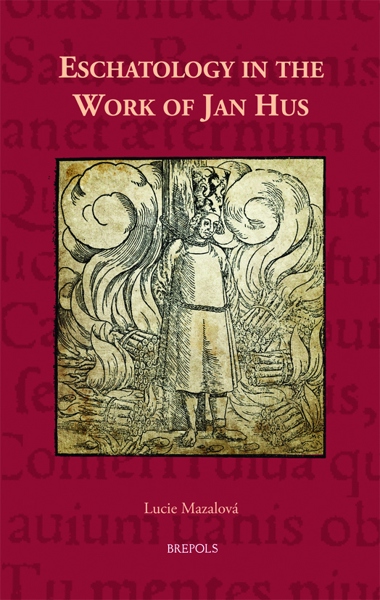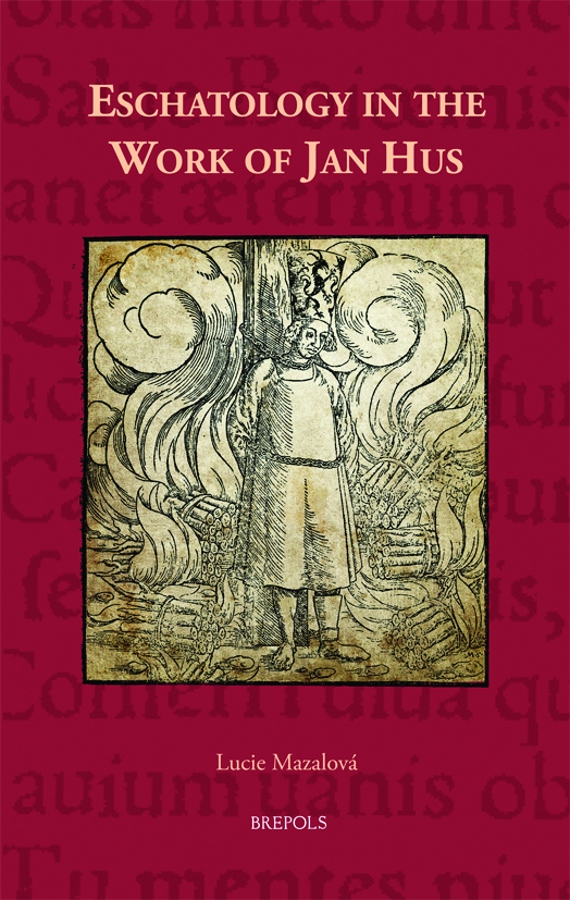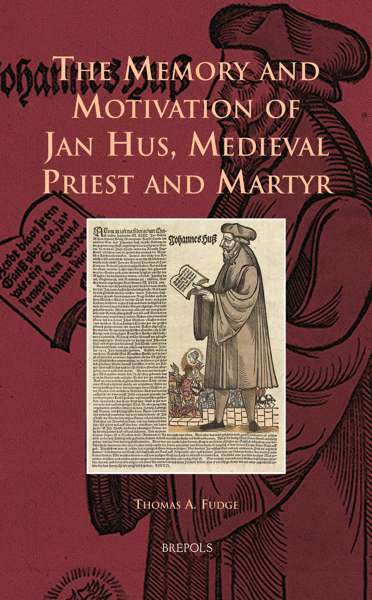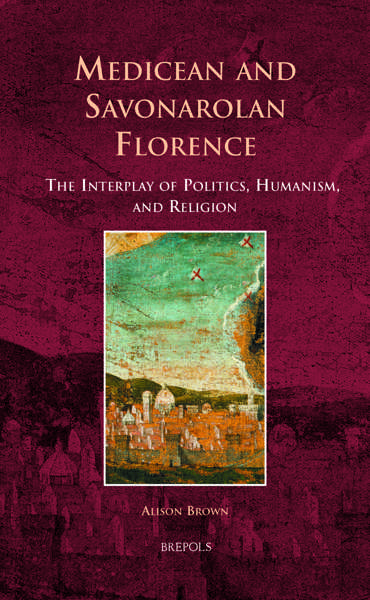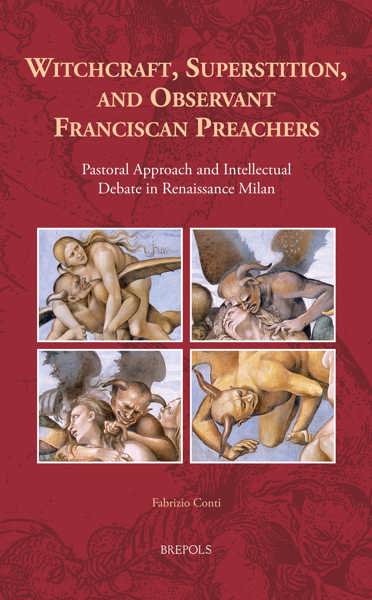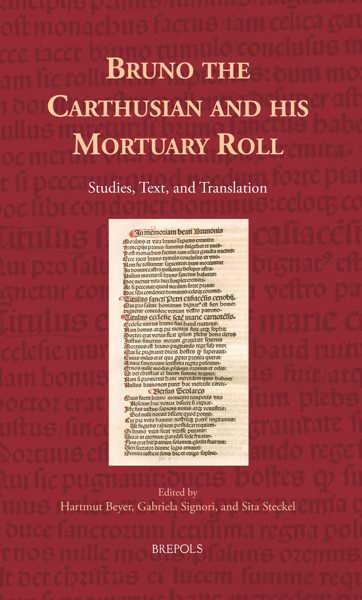
Eschatology in the Work of Jan Hus
Lucie Mazalová
- Pages: 254 p.
- Size:156 x 234 mm
- Illustrations:3 col.
- Language(s):English
- Publication Year:2022
- € 78,00 EXCL. VAT RETAIL PRICE
- ISBN: 978-2-503-59305-0
- Hardback
- Available
- € 78,00 EXCL. VAT RETAIL PRICE
- ISBN: 978-2-503-59306-7
- E-book
- Available
A comprehensive overview of the ideas of Hus, one of the most important figures in the Bohemian Reformation, conceptualized within the framework of Czech and European thought.
"Overall, this work marks a significant contribution to the rapidly expanding corpus of refined and targeted scholarship on Jan Hus. Mazalová’s work should be required reading for scholars of late medieval religion and not just specialists on Bohemia" (Reid S. Weber, in Austrian History Yearbook, 2024/1-2)
"Znaczenie recenzowanej pracy leży gdzie indziej. Jej największym walorem jest systematyczna analiza języka, za pomocą którego Hus opisywał wątki eschatologiczne. Autorka pieczołowicie zestawiła i przeanalizowała łacińskie, a także czeskie terminy i zwroty, wyjaśniając ich znaczenie w różnych kontekstach sytuacyjnych i literackich. Zwróciła także uwagę na występujące w tekstach Husa fi gury retoryczne, które nadawały jego wystąpieniom emocjonalne zabarwienie i służyły przekazywaniu istotnych treści katechetycznych." (Paweł Kras, in Studia Źródłoznawcze. Commentationes, 62, 2004, p. 262)
"One of the book’s many strengths is the serious engagement with Hus’s work and the many references thereto. (...) Mazalová is a meticulous and scrupulous scholar. She has produced
an important study in a major language on an important topic focused on a largely overlooked area of inquiry. It can be recommended to those interested in religious history and theology." (Thomas A. Fudge, in Parergon, 42/1, 2025, p. 231-232)
Lucie Mazalová is a Latin medievalist who specializes in the Bohemian Reformation, with a focus on medieval eschatology. She works at the Department of Classical Studies of the Faculty of Arts of Masaryk University in Brno, where she is a member of an editorial team that publishes critical editions of the works of Jan Hus, several of which she has edited.
This study provides a systematic and comprehensive overview of Hus’s ideas on the last things as they are presented in both his work and life. It examines the content and language of his works, particularly his Latin sermons and correspondence, from a literary-historical perspective. It explores general eschatology (Antichrist, purgatory, heaven and hell), as well as its intertwining with the Last Things that Jan Hus experienced personally in his struggle against Antichrist. Thus, the reader will learn not only about Hus’s official ideas, but also about his intimate thoughts contained in correspondence written during his exile and even as he was in prison awaiting death.
The book also presents Hus’s eschatology in the broader context of Church reform. It clarifies how Hus’s eschatology developed from its beginnings up to his death, and takes into account the writings of other thinkers whose ideas are connected to Hus’s eschatology, such as John Wycliffe, Milíč of Kroměříž, Matěj of Janov, and Nicholas of Dresden. The book also features an introductory prolegomena on Hus’s life and work and early reform eschatology, which describes not only relevant Czech influences on Hus’s eschatology (e.g. university theology, social-political factors, the Czech preaching tradition), but also European influences (e.g. Peter Lombard, heterodox doctrines).
List of Illustrations, Abbreviations, Acknowledgements, Foreword
Introduction
- The Current State of Research on Hus’s Eschatology
- A Note on Methods
- Medieval Christian Eschatology
- The Eschatology of Heterodox Doctrines in Bohemia in the Fourteenth and Early Fifteenth Centuries
- The Eschatology of the Early Bohemian Reformation
- The Eschatology of John Wycliffe
- Prophecies
- Other Eschatological Ideas Contained in Contemporary Czech Literature
- The Possible Influence of Crisis Factors in the Fourteenth Century
- Hus’s University Education
- Milestones in Hus’s Life, Hus’s Personality, Works, and Career
- The Development of Hus’s Ideas up to 1405
- The Marks of Antichrist in Hus’s Synodal Sermons Diliges Dominum Deum (1405) and State Succincti (1407)
- Evidence of the Coming of Antichrist: Biblical and Non-biblical Authorities and Hus’s Own Experience
- Antichrist Terminology in Hus’s Synodal Sermons
- The Rhetorical Devices of Hus’s Synodal Sermons
- The Terminology and Rhetorical Devices of the Correspondence
- The Development of the Antichrist Theme in Hus’s Letters
- A Comparison with the Notion of Antichrist in Super Quattuor Sententiarum
- Comparing Hus’s Notions of Antichrist with the Ideas of Milíč of Kroměříž
- Comparing Hus’s Notion of Antichrist with Matěj of Janov’s
- Comparing Hus’s Ideas with those of Wycliffe
- A Comparison of Hus’s Notion of Antichrist with Jakoubek’s Presented in Posicio de Anticristo
- What is the Nature of Purgatory?
- The Power of Prayers for Intercession
- A Comparison with the Sources of Dixit Martha
- A Comparison with Works Based on Hus’s Dixit Martha
- A Comparison with the Ideas of Hus’s Predecessors and Contemporaries
- Threats and the End of the World
- Death
- Hus’s Eschatology and its Place in Medieval Thought
Bibliography
- Primary Sources
- Secondary Works
